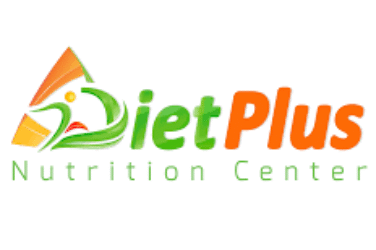
The Ultimate Guide to Fast Weight Loss: Achieve Your Goals Effectively

Embarking on a fast weight loss journey can seem daunting, but with the right approach, it’s entirely achievable. In today’s fast-paced world, many individuals seek rapid results to boost their confidence, improve their health, or simply fit into that favorite outfit. This comprehensive guide provides a realistic and sustainable approach to shedding those extra pounds quickly and safely. We will delve into the science behind fast weight loss, exploring effective strategies, dietary adjustments, and lifestyle modifications that can help you reach your goals. Remember, the key is to prioritize your health while aiming for a slimmer physique. This isn’t just about losing weight; it’s about gaining a healthier, happier you.
Before you jump into any fast weight loss plan, it’s crucial to consult with a healthcare professional. They can assess your individual needs, identify any underlying health conditions, and help you create a safe and effective weight loss strategy. This guide serves as a valuable resource, but it should not replace personalized medical advice. We’ll cover various techniques, from dietary changes and exercise routines to mindful eating and stress management. So, are you ready to transform your body and embrace a healthier lifestyle? Let’s dive in!
Understanding the Science of Fast Weight Loss
The Calorie Deficit: The Foundation of Weight Loss
The cornerstone of any weight loss program, especially a fast weight loss approach, is creating a calorie deficit. This means consuming fewer calories than your body burns each day. When your body doesn’t receive enough calories from food, it starts tapping into its stored energy reserves, primarily fat, to fuel its functions. Understanding your Basal Metabolic Rate (BMR) is crucial. Your BMR represents the number of calories your body burns at rest. You can use online calculators or consult with a nutritionist to determine your BMR. Once you know your BMR, you can calculate the appropriate calorie deficit for fast weight loss. A deficit of 500 to 1000 calories per day typically leads to a weight loss of 1 to 2 pounds per week, which is considered a healthy and sustainable rate.
However, it’s important to avoid extreme calorie restriction. Severely limiting your calorie intake can lead to nutrient deficiencies, muscle loss, and a slowed metabolism, making it harder to lose weight in the long run. It can also trigger unhealthy eating patterns and increase the risk of developing eating disorders. Aim for a moderate calorie deficit that allows you to lose weight steadily while still providing your body with the nutrients it needs to function optimally. Focus on consuming nutrient-dense foods, such as fruits, vegetables, lean proteins, and whole grains, to maximize your calorie intake.
Macronutrient Manipulation: Optimizing Your Diet for Fast Weight Loss
While calorie deficit is fundamental, manipulating your macronutrient intake (proteins, carbohydrates, and fats) can further enhance fast weight loss. Protein is particularly important, as it helps preserve muscle mass during weight loss, boosts satiety, and requires more energy to digest than carbohydrates or fats. Aim for a protein intake of around 0.8 to 1 gram per pound of body weight. Include lean protein sources like chicken breast, fish, beans, and tofu in your meals. Carbohydrates are your body’s primary source of energy, but it’s important to choose complex carbohydrates over simple sugars. Complex carbohydrates, such as whole grains, vegetables, and fruits, are digested slowly, providing sustained energy and preventing blood sugar spikes. Limit your intake of refined carbohydrates, such as white bread, pastries, and sugary drinks, which can contribute to weight gain. Healthy fats are also essential for hormone production, nutrient absorption, and overall health. Choose unsaturated fats, such as those found in avocados, nuts, seeds, and olive oil, over saturated and trans fats.
The Role of Exercise in Accelerating Weight Loss
Exercise plays a vital role in accelerating fast weight loss and improving overall health. Engaging in regular physical activity not only burns calories but also helps build muscle mass, which increases your metabolism and allows you to burn more calories even at rest. Aim for a combination of cardiovascular exercise and strength training. Cardiovascular exercises, such as running, swimming, cycling, and dancing, are effective for burning calories and improving cardiovascular health. Strength training, such as weightlifting, bodyweight exercises, and resistance band workouts, helps build muscle mass and increase strength. Aim for at least 150 minutes of moderate-intensity cardiovascular exercise or 75 minutes of vigorous-intensity cardiovascular exercise per week, along with two to three strength training sessions. Remember to listen to your body and gradually increase the intensity and duration of your workouts to avoid injuries. Combining a balanced diet with regular exercise is the most effective way to achieve fast weight loss and maintain a healthy weight in the long run.
Effective Dietary Strategies for Fast Weight Loss
Intermittent Fasting: A Time-Restricted Eating Approach
Intermittent fasting (IF) is a popular dietary strategy that involves cycling between periods of eating and fasting. It’s not a diet in the traditional sense, but rather an eating pattern that focuses on *when* you eat rather than *what* you eat. Several IF methods exist, including the 16/8 method (fasting for 16 hours and eating within an 8-hour window), the 5:2 diet (eating normally for five days a week and restricting calories to 500-600 for two days), and alternate-day fasting (alternating between days of normal eating and days of restricted calorie intake). Intermittent fasting can be an effective tool for fast weight loss by reducing overall calorie intake and increasing fat burning. During the fasting periods, your body starts using stored fat for energy, leading to weight loss. IF can also improve insulin sensitivity, which can further enhance fat loss and reduce the risk of type 2 diabetes.
However, intermittent fasting is not suitable for everyone. It’s important to consult with a healthcare professional before starting IF, especially if you have any underlying health conditions, such as diabetes, eating disorders, or are pregnant or breastfeeding. When practicing IF, it’s crucial to prioritize nutrient-dense foods during your eating windows to ensure you’re getting all the necessary vitamins and minerals. Avoid overeating or consuming unhealthy foods during your eating periods, as this can negate the benefits of IF. Stay hydrated by drinking plenty of water, and be mindful of any side effects, such as fatigue, headaches, or irritability. If you experience any adverse effects, consider adjusting your IF schedule or discontinuing it altogether.
Low-Carb Diets: Reducing Carbohydrate Intake for Weight Loss
Low-carb diets, such as the ketogenic diet and the Atkins diet, involve restricting carbohydrate intake while increasing fat and protein consumption. By limiting carbohydrates, your body enters a metabolic state called ketosis, where it starts burning fat for energy instead of glucose. This can lead to fast weight loss, as your body is primarily using fat as its fuel source. Low-carb diets can also help regulate blood sugar levels, reduce appetite, and improve cholesterol levels. The ketogenic diet typically restricts carbohydrate intake to less than 50 grams per day, while the Atkins diet gradually increases carbohydrate intake over time.
While low-carb diets can be effective for fast weight loss, they’re not without their potential drawbacks. Some people may experience side effects such as the “keto flu,” which includes symptoms like fatigue, headache, and constipation. It’s important to stay hydrated and consume electrolytes to minimize these side effects. Low-carb diets can also be difficult to sustain in the long run, as they require significant dietary changes and restrictions. It’s crucial to choose healthy sources of fat and protein, such as avocados, nuts, seeds, olive oil, lean meats, and fish, while avoiding processed foods and unhealthy fats. If you’re considering a low-carb diet, it’s best to consult with a healthcare professional or a registered dietitian to ensure it’s appropriate for your individual needs and health status.
Plant-Based Diets: A Healthy and Sustainable Approach to Weight Loss
Plant-based diets, such as vegetarian and vegan diets, focus on consuming primarily plant-based foods, such as fruits, vegetables, legumes, whole grains, nuts, and seeds. These diets are typically low in calories, high in fiber, and rich in nutrients, making them an excellent choice for fast weight loss and overall health. Plant-based diets can help you lose weight by reducing your calorie intake, increasing your satiety, and improving your digestion. They can also lower your risk of chronic diseases, such as heart disease, type 2 diabetes, and certain types of cancer. Vegetarian diets exclude meat, poultry, and fish, while vegan diets also exclude dairy products, eggs, and honey.
When following a plant-based diet for fast weight loss, it’s important to ensure you’re getting all the essential nutrients, such as protein, iron, vitamin B12, and omega-3 fatty acids. Include a variety of plant-based protein sources in your diet, such as beans, lentils, tofu, tempeh, and quinoa. Iron can be found in dark leafy greens, beans, and fortified cereals, but it’s important to consume iron-rich foods with vitamin C to enhance absorption. Vitamin B12 is primarily found in animal products, so vegans may need to supplement with vitamin B12. Omega-3 fatty acids can be obtained from flaxseeds, chia seeds, walnuts, and algae-based supplements. A well-planned plant-based diet can be a healthy and sustainable approach to fast weight loss and overall well-being.
Lifestyle Modifications to Support Fast Weight Loss
Prioritizing Sleep: The Key to Hormonal Balance and Weight Management
Getting enough sleep is crucial for overall health and plays a significant role in fast weight loss. When you’re sleep-deprived, your body produces more of the stress hormone cortisol, which can increase appetite and promote fat storage. Lack of sleep can also disrupt the hormones that regulate hunger and satiety, leading to increased cravings for unhealthy foods and decreased feelings of fullness. Aim for at least 7-8 hours of quality sleep each night to support your weight loss efforts. Establish a regular sleep schedule by going to bed and waking up at the same time each day, even on weekends. Create a relaxing bedtime routine to unwind before sleep, such as taking a warm bath, reading a book, or practicing meditation. Avoid caffeine and alcohol before bed, and ensure your bedroom is dark, quiet, and cool.
Managing Stress: Preventing Emotional Eating and Weight Gain
Stress can significantly impact your weight loss journey. When you’re stressed, your body releases cortisol, which can lead to increased appetite, cravings for comfort foods, and abdominal fat storage. Chronic stress can also disrupt your sleep, further exacerbating weight gain. Managing stress is essential for preventing emotional eating and supporting fast weight loss. Identify your stressors and develop healthy coping mechanisms, such as exercise, yoga, meditation, spending time in nature, or talking to a therapist. Practice mindfulness techniques to become more aware of your thoughts and feelings, and avoid using food as a way to cope with stress. Set realistic goals, prioritize self-care, and learn to say no to commitments that overwhelm you. By managing stress effectively, you can reduce emotional eating and create a more conducive environment for fast weight loss.
Staying Hydrated: Boosting Metabolism and Reducing Appetite
Drinking enough water is essential for overall health and plays a crucial role in fast weight loss. Water helps boost your metabolism, suppress your appetite, and flush out toxins from your body. Dehydration can slow down your metabolism, making it harder to lose weight. It can also lead to increased hunger and cravings, as your body may mistake thirst for hunger. Aim to drink at least 8 glasses of water per day, and increase your intake during exercise or in hot weather. Carry a water bottle with you throughout the day and sip on it regularly. You can also incorporate hydrating foods into your diet, such as fruits and vegetables with high water content, such as watermelon, cucumbers, and lettuce. Avoid sugary drinks, such as sodas and juices, which are high in calories and can hinder your weight loss efforts. Staying hydrated is a simple yet effective way to support fast weight loss and improve your overall well-being.
Sample Meal Plan for Fast Weight Loss
| Meal | Example | Approximate Calories |
|---|---|---|
| Breakfast | Oatmeal with berries and nuts | 300 |
| Lunch | Grilled chicken salad with mixed greens and avocado | 400 |
| Dinner | Baked salmon with roasted vegetables | 500 |
| Snacks | Apple slices with almond butter, Greek yogurt with berries | 200 |
Conclusion
Achieving fast weight loss is possible with a combination of smart strategies, but it’s important to approach it in a healthy and sustainable way. Remember that the information provided in this guide is not a substitute for professional medical advice. Always consult with a healthcare provider or registered dietitian before making significant changes to your diet or exercise routine. Prioritize your health, listen to your body, and be patient with the process. Focus on making sustainable lifestyle changes that you can maintain in the long run. With dedication, consistency, and the right approach, you can achieve your weight loss goals and enjoy a healthier, happier life.
Frequently Asked Questions
“`
